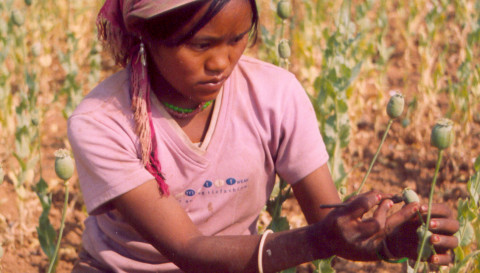Ideas into movement
Boost TNI's work
50 years. Hundreds of social struggles. Countless ideas turned into movement.
Support us as we celebrate our 50th anniversary in 2024.

Myanmar Times - Repressive drug laws and corruption have contributed to Myanmar’s spiralling narcotics problem, according to advocacy groups, who are calling on the new government to launch a change of policy.

UNGASS “represents a critical juncture, an opportunity for an honest evaluation of global drug policy and how to address the most pressing challenges going forward”, said the Amsterdam-based Transnational Institute (TNI).
However, little is known about how Daw Aung San Suu Kyi and the new government intend to tackle these issues. The NLD election manifesto last year said almost nothing on the subject.
UNODC says it is “already engaging” with the NLD to “discuss options and solutions” on drugs in Myanmar in an effort to “turn the situation around”.
But developing drug policies is a challenge in Myanmar, where reliable data is often lacking. UNODC plans to complete the first national drug use survey involving 53,000 households early next year.
The government’s 2006-10 “national strategic plan” for HIV and AIDS estimated 60,000 to 90,000 injecting drug users in Myanmar. However a 2006 report by TNI cites international NGOs as estimating the number of drug users at between 300,000 and 500,000, including an estimated 150,000 to 250,000 injecting drug users.
UNODC recommends a “whole government approach to drugs”. Counter-drug efforts in Myanmar are managed by the military-controlled Ministry of Home Affairs but Mr Vester suggested that responsibility for certain sectors, such as prevention and treatment, could be led by the education and health ministries.
“The drug issue is so big,” he said. “To think that one ministry would deal with this issue is unrealistic.”
Read the full article